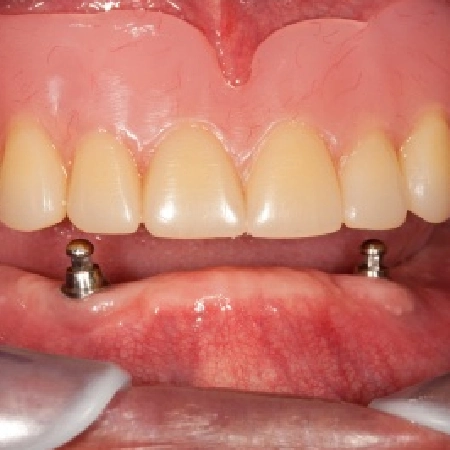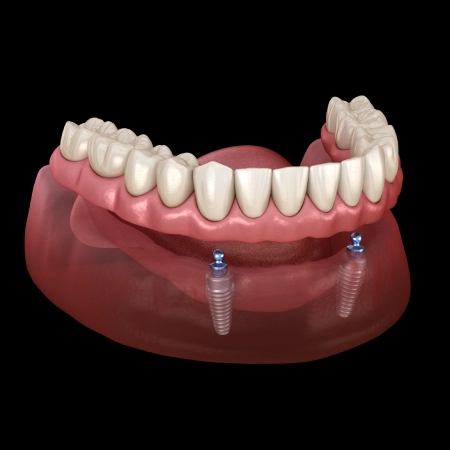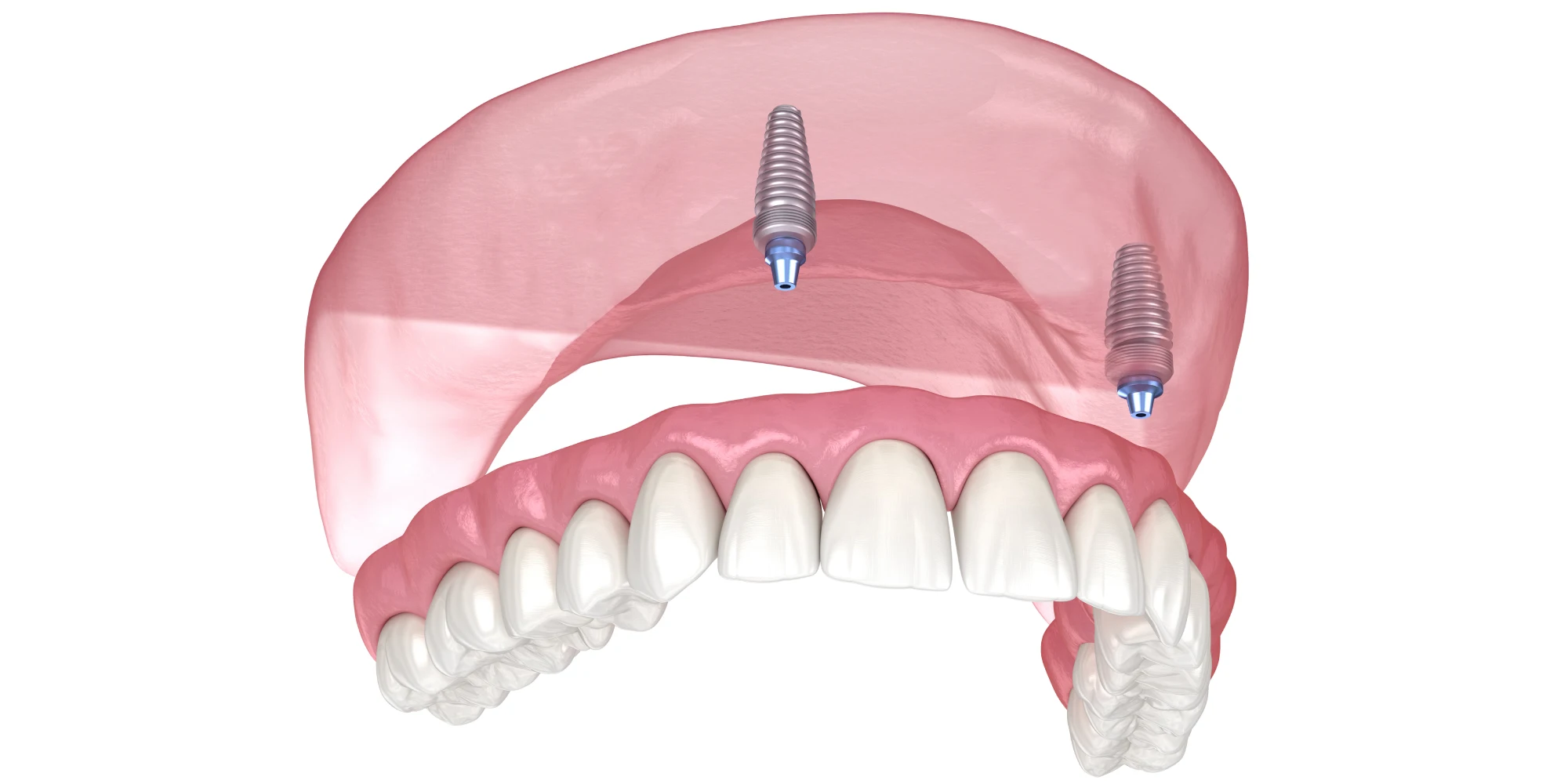Denture stabilization provides an opportunity for people to enjoy the affordability of dentures while minimizing their disadvantages. In the U.S., millions of individuals have lost most of their natural teeth. While single-tooth implants offer the best solution for tooth replacement, the expenses can quickly add up when multiple teeth need to be replaced. As a result, many turn to dentures as a more budget-friendly option.
Many individuals who wear dentures face common challenges, such as difficulty eating comfortably and dealing with dentures that slip or move in their mouths. Additionally, many people dislike using dental adhesives due to their unpleasant taste. Now, there’s a better option available for those seeking an alternative to dentures but cannot afford full teeth replacement with implants.
Let us understand what is denture stabilization, its benefits, its techniques, and how it can significantly improve the lives of denture wearers.
Understanding Denture Stabilization
Denture stabilization addresses the issue of dentures moving around in the mouth, a common concern for many wearers. Thankfully, advancements in dental technology now offer solutions to this problem. By using implants to anchor the dentures securely, stability is greatly improved. Implant-supported dentures are gaining popularity as they offer a more reliable option. These dentures involve placing implants into the jawbone, which not only stabilizes the dentures but also helps prevent bone loss. Unlike traditional dentures, implant overdentures provide a permanent solution, requiring professional removal by a dentist once installed.
This means that patients don’t have to go through the exhausting cleaning routines that come with traditional dentures. They simply need to remove the device at night for thorough cleaning. After brushing their mouth, the dentures are soaked in denture solution overnight to disinfect and re-moisturize them.
Benefits of Denture Stabilization
Stabilizing dentures offers numerous benefits, including:
Improved Comfort:
Traditional dentures can sometimes cause discomfort due to movement or rubbing against the gums. Denture stabilization techniques help minimize these issues, resulting in a more comfortable wearing experience.

Enhanced Stability:
One of the primary benefits of denture stabilization is improved stability. Securing dentures in place prevents them from shifting or slipping, allowing individuals to eat, speak, and smile with confidence.
Better Chewing Efficiency:
With stabilized dentures, individuals can enjoy a more natural chewing experience, as the dentures remain securely in place while eating. It leads to improved digestion and overall nutritional intake.
Boosted Confidence:
Denture stabilization techniques can significantly enhance self-confidence by beautifying your smile. Individuals no longer have to worry about their dentures slipping or shifting unexpectedly, allowing them to engage in social interactions with ease.
Why Ignoring Missing Teeth is a Mistake?
Some individuals choose to overlook their missing teeth due to financial or time constraints. However, this should never be considered an option, as living with missing teeth can give rise to various oral issues.
Here are some disadvantages of ignoring missing teeth:
Disintegrating Facial Structures:
Missing teeth can lead to a deterioration in facial structures over time, affecting the overall appearance and symmetry of the face.
Difficulty Speaking and Eating:
Gaps from the missing teeth can make it challenging to articulate words properly and chew food effectively, impacting one’s ability to communicate and enjoy meals.
Premature Aging:
Missing teeth can make the face appear older, as the jawbone may shrink and facial muscles sag without the support of teeth.
Reduced Self-Esteem:
Missing teeth can negatively impact your self-esteem and confidence. It leads to feelings of self-consciousness and reluctance to smile or engage in social interactions.
What are the Techniques for Denture Stabilization?
Here are some common techniques for denture stabilization:

Implant-supported Dentures:
Dental implants are placed into the jawbone to support and secure dentures in place.
Adhesive Pastes or Powders:
Specialized adhesives can be applied to the underside of dentures to enhance grip and stability.
Denture Relining:
Adjustments to the base of the dentures can improve fit and reduce movement within the mouth.
Denture Adjustments:
Minor alterations to the denture structure can help achieve a better fit and stability.
Attachment Systems:
Various attachment systems, such as locator attachments or ball and socket mechanisms, can be incorporated into dentures to improve stability and retention.
Overdentures:
These are removable dentures that fit over natural teeth or dental implants, providing additional stability and support.
Is Denture Stabilization Right for You?
If you’re experiencing discomfort or dissatisfaction with your traditional dentures due to issues with stability, denture stabilization may be the solution you’ve been looking for. Whether you opt for implant-supported dentures, adhesive materials, or precision attachment systems, denture stabilization techniques can vastly improve the comfort, stability, and functionality of your dentures.
Conclusion
So, What is Denture Stabilization? Denture stabilization is a game-changer for individuals seeking a more comfortable and secure solution for tooth replacement. By enhancing stability, comfort, and confidence, denture stabilization techniques allow individuals to enjoy life fully without worrying about denture slippage or discomfort. If you’re considering denture stabilization, consult with our dentist at Seattle’s Best Smiles to explore the options available and find the best solution for your needs. Say goodbye to denture woes and hello to a confident, comfortable smile with denture stabilization.
FAQ
Can You Retrofit Your Existing Dentures for Stabilization?
You can enhance the stability of your existing dentures through a process called retrofitting. Your dentist can adjust your dentures by adding discreet attachments underneath. These modifications seamlessly blend with your dentures and securely bond with metal posts, ensuring improved stability and comfort.
How does denture stabilization work?
Denture stabilization techniques use various methods, including implants and attachments, to secure dentures firmly in place, minimizing movement and discomfort.
Is denture stabilization suitable for everyone?
Denture stabilization can benefit many individuals seeking a more secure and comfortable tooth replacement option. However, it’s best to consult with your dentist to determine if it’s the right choice for you.




